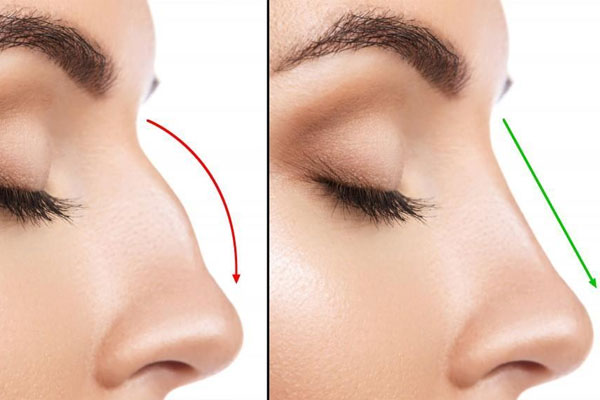Rhinoplasty, commonly known as a "nose job," is a surgical procedure used to reshape and enhance the appearance of the nose. This elective surgical procedure can be performed for both cosmetic and medical reasons. Here are some key points about rhinoplasty:
Cosmetic Rhinoplasty: This is the most common type of rhinoplasty and is performed to improve the aesthetic appearance of the nose. Patients may want to change the size, shape, or proportions of their nose to achieve their desired look.
Functional Rhinoplasty: In some cases, rhinoplasty is performed for medical reasons, such as correcting breathing difficulties, structural deformities, or injuries to the nose. This is often referred to as functional or reconstructive rhinoplasty.
Procedure: Rhinoplasty is typically performed under general anesthesia, although local anesthesia with sedation is also an option. During the surgery, the surgeon makes incisions inside the nose (closed rhinoplasty) or along the columella (the strip of tissue between the nostrils) and lifts the skin to access and reshape the nasal bone and cartilage. The surgeon may remove, add, or reposition tissue to achieve the desired result. The incisions are then closed, and the nose is typically splinted to support the new shape during the initial healing period.
Recovery: The recovery period for rhinoplasty can vary but usually takes several weeks. Patients may experience swelling, bruising, and discomfort during the first few days. Nasal packing may also be used. Over time, the swelling and bruising will subside, and patients can expect to see the final results after several months.
Risks: Rhinoplasty, like any surgical procedure, carries potential risks, including infection, bleeding, scarring, and unsatisfactory results. It's essential to choose a qualified and experienced surgeon to minimize these risks.
Consultation: Before getting a rhinoplasty, it's important to have a consultation with a board-certified plastic surgeon or facial plastic surgeon. During this consultation, you can discuss your goals, concerns, and expectations. The surgeon will evaluate your nose and determine if the procedure is appropriate for you.
Cost: The cost of rhinoplasty varies depending on factors such as the surgeon's expertise, location, and the complexity of the procedure. It typically includes the surgeon's fee, anesthesia, and facility fees. Cosmetic rhinoplasty is often not covered by health insurance, while functional rhinoplasty for medical reasons may be partially or fully covered.
Realistic Expectations: It's important for individuals considering rhinoplasty to have realistic expectations about the results. Communication with the surgeon is key to ensuring that the desired outcome is achievable and in line with the patient's expectations.
Rhinoplasty can be a life-changing procedure for some individuals, improving their self-esteem and overall appearance. However, it is essential to thoroughly research and choose a qualified and experienced surgeon and to carefully consider the potential risks and benefits before undergoing the surgery.


